“I never tire of providing care, so that mothers can experience the joy of holding a healthy baby again.”
Your donation will help Nurse Pascale save lives in our NICU.
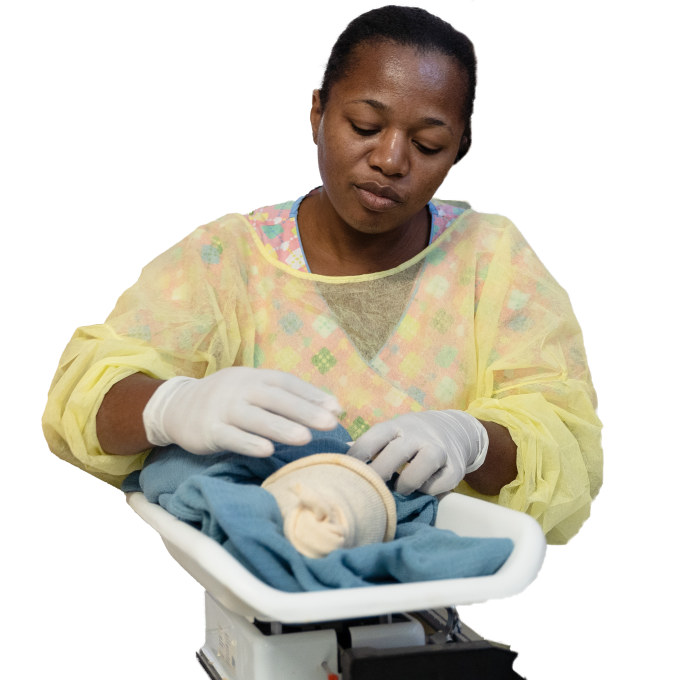
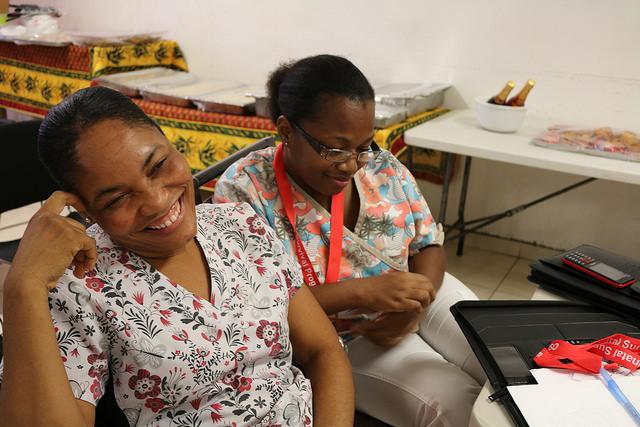
In early November, SBH welcomed four nurses from the Ohio State University Wexner Medical Center’s (OSU) Greif Neonatal Survival Program led by Diane Gorgas, MD, executive director, Office of Global Health to Fond des Blancs for a collaborative, two-week training course on specialized neonatal nursing. The training was generously funded by our partners at the W.K. Kellogg Foundation. Fourteen of our NICU nurses attended the training, as well as a NICU nurse from the nearby city of Les Cayes. While ongoing training is an essential part of any practicing health professional’s career, cross-cultural partnerships such as this present a unique opportunity to get new perspectives on patient care and best practices.
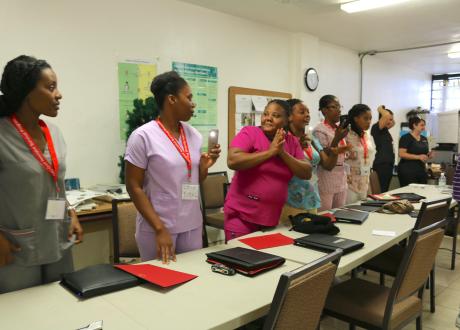
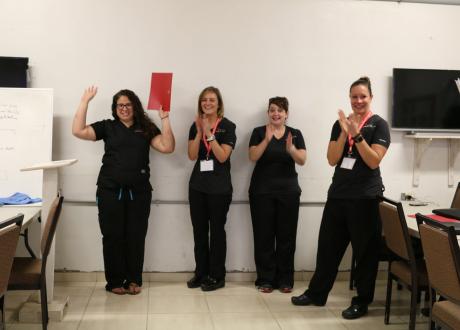
SBH’s NICU nurses are highly-trained healthcare professionals who have years of experience caring for infants in Haiti. The goal of this training was to further enhance our nurse’s already-high standard of care by providing them with advanced, NICU-specific skills that are typically not available to nurses in Haiti. In addition, the OSU team sought to learn more about how neonatal care is delivered in Haiti and to collaborate with the SBH team on process enhancements.
Each day during the two-week training, the nurses worked together in the NICU and examined best practices such as keeping infants warm, following their respiratory issues, and proper positioning support. The OSU nurses also led didactic lectures each day on topics such as physical assessments and developmental care.
For SBH nurse Sonya, the trainings meant more than just enhancing her own skills. She said, “It is important for Haiti, because there are very limited NICU’s [here], and babies travel to us from all over the country. Improving the care for NICU babies at St. Boniface means that we are improving care for babies needing NICU services throughout the country.”
OSU nurse Sara Hastie was inspired by the level of collaboration and teamwork between the SBH nurses. She told us, “This afternoon in the NICU, we got about five admissions one right after another. [All of the SBH nurses] jumped right in to get the babies stabilized. They said that ‘this is really for the babies and when we work as a team, that’s best for the babies’.” Similarly, OSU nurse Alexandria Edmonds told us, “Interacting with the SBH nurses will remind me to be more resourceful in my practice… Be conscious of the amount of materials you’re using, and [if] you can find another way to do what you want.”
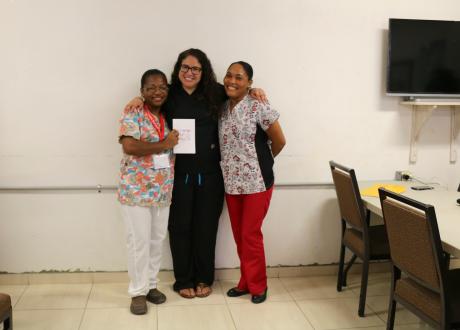
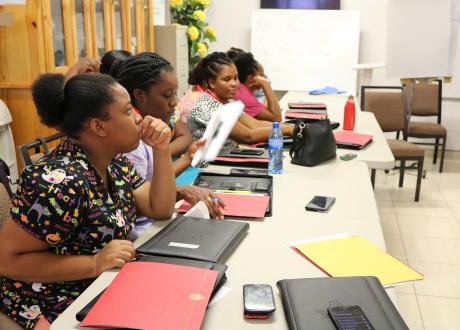
At the end of the two weeks, the two nursing teams had bonded deeply over their shared commitment to the babies they care for. Nurse Hastie told us, “NICU nursing is a calling and an art. Here at the SBH NICU… the passion I see that the nurses have for the babies is the passion I have in my own heart.” For these nursing teams, it does not matter where in the world they are—what matters is that the infants in their care receive the love, compassion, and support they need to thrive and lead happy, healthy lives.
Your donation will help Nurse Pascale save lives in our NICU.
